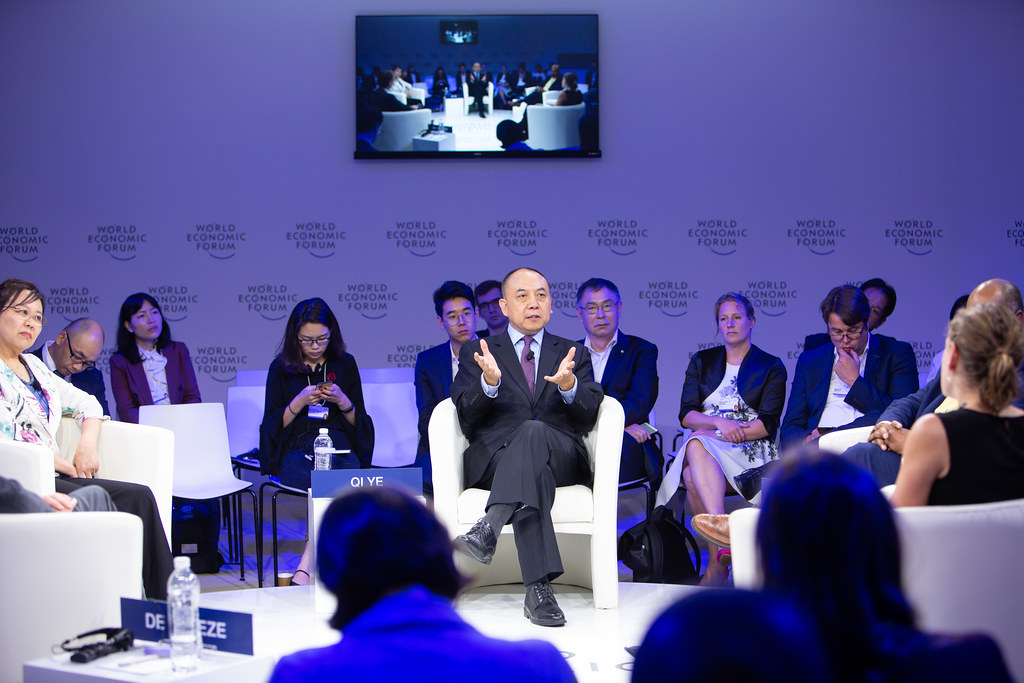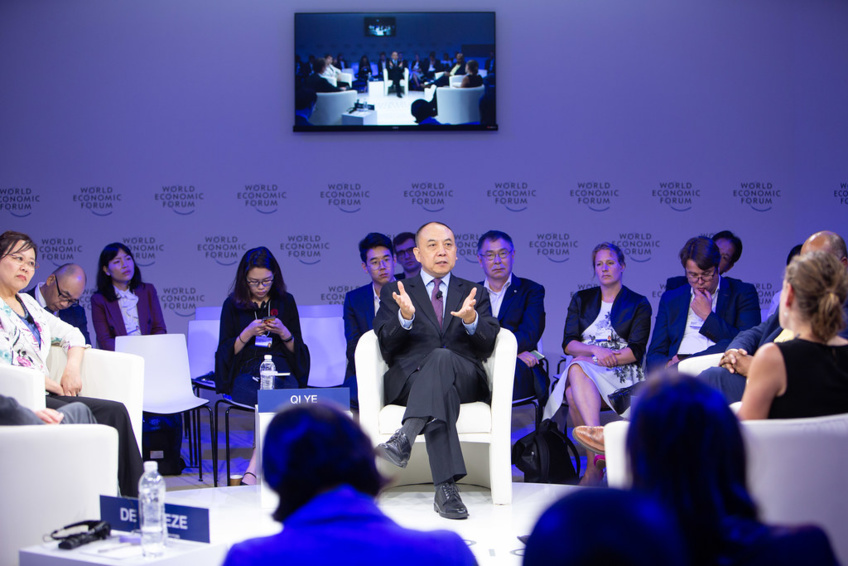In the lead-up to COP28, a partnership has been formed between the UNEP’s Climate and Clean Air Coalition (CCAC), The Global Methane Hub (GMH), and Delterra, with the aim of curbing methane emissions in the Global South. The issue of methane is a key point on the COP28 agenda, and these three entities are well-equipped to capitalize on this significant chance to combat global warming.
While carbon dioxide often dominates climate discussions, methane’s warming effect is considerably more potent in the short term, being up to 80 times stronger in its first two decades in the atmosphere. Anthropogenic methane is responsible for at least a quarter of current global warming, with 20% of this methane originating from wastewater and landfills where organic waste generates methane in low-oxygen conditions. Therefore, reducing methane is arguably the most effective method to slow global warming in the near future, and diverting organic waste from landfills is one of the simplest ways to achieve this.
In the Global North, many cities separate food waste, garden waste, and other organics from landfill waste, which can then be converted into compost, biogas, or other products. However, in the Global South, billions of individuals do not have regular garbage collection, let alone sophisticated waste management systems that separate and process organics. Delterra, CCAC, and GMH have joined forces to enhance capabilities in this region and contribute to global methane reduction targets.
The new alliance will see the three organizations collaborating on organic waste projects in Argentina, Indonesia, and Brazil. These are three markets where Delterra already has established relationships with numerous local waste management system stakeholders. Besides reducing greenhouse gas emissions, these collaborative projects will generate new markets for organic materials, enhance ecosystem health and quality of life, and offer a gateway to the circular economy.
“We are thrilled to be partnering with CCAC and GMH to tackle methane emissions in Asia and Latin American and shine light on this important opportunity to mitigate climate impacts. Delterra’s systems approach to integrated recycling and waste management has already driven significant material recovery in a number of municipalities in the Global South. We are excited to expand our impact with this new work with a particular focus on achieving organics separation in residences and businesses, increasing organics processing, engaging municipalities and up-skilling workers,” said Dr. Shannon Bouton, President & CEO at Delterra.
“The global waste crisis is now firmly on the climate agenda. There is growing recognition that, left unaddressed, short-lived climate pollutants (SLCPs) from waste will accelerate global warming and significantly contribute to deteriorating air quality in cities. It is essential that we invest in alternatives and demonstrate the viability of circular economies - from household behavioural change to the development of markets through the valorisation of waste. This multi-year project, in partnership with Delterra and the GMH, will offer valuable insights into the creation of circular and inclusive waste systems by providing lessons for those countries seeking alternatives to their current waste predicaments,” said Ms. Martina Otto, Head of UNEP-convened Climate and Clean Air Coalition.
“We are proud to partner with Delterra and CCAC to reduce methane emissions from the waste sector in the Global South,” said Carolina Urmeneta, Waste Program Director at The Global Methane Hub.
“The Global South is disproportionately impacted by climate change, and it is vital that climate efforts address the barriers and unique challenges the region faces in a way that benefits and supports local economies and communities. Through this partnership, we will accelerate capacity in waste management in countries like Argentina and Indonesia, advance better practices for data collection, and provide support to local governments for circular economy efforts and methane emissions reduction.”
Technology and Innovation, a key theme of COP28, will soon be showcased at Expo City in Dubai, with the forefront of climate technology on display. Delterra, CCAC, and GMH aim to demonstrate that a relatively simple solution - the diversion of organic waste - can also serve as a potent weapon in the fight against global warming.
While carbon dioxide often dominates climate discussions, methane’s warming effect is considerably more potent in the short term, being up to 80 times stronger in its first two decades in the atmosphere. Anthropogenic methane is responsible for at least a quarter of current global warming, with 20% of this methane originating from wastewater and landfills where organic waste generates methane in low-oxygen conditions. Therefore, reducing methane is arguably the most effective method to slow global warming in the near future, and diverting organic waste from landfills is one of the simplest ways to achieve this.
In the Global North, many cities separate food waste, garden waste, and other organics from landfill waste, which can then be converted into compost, biogas, or other products. However, in the Global South, billions of individuals do not have regular garbage collection, let alone sophisticated waste management systems that separate and process organics. Delterra, CCAC, and GMH have joined forces to enhance capabilities in this region and contribute to global methane reduction targets.
The new alliance will see the three organizations collaborating on organic waste projects in Argentina, Indonesia, and Brazil. These are three markets where Delterra already has established relationships with numerous local waste management system stakeholders. Besides reducing greenhouse gas emissions, these collaborative projects will generate new markets for organic materials, enhance ecosystem health and quality of life, and offer a gateway to the circular economy.
“We are thrilled to be partnering with CCAC and GMH to tackle methane emissions in Asia and Latin American and shine light on this important opportunity to mitigate climate impacts. Delterra’s systems approach to integrated recycling and waste management has already driven significant material recovery in a number of municipalities in the Global South. We are excited to expand our impact with this new work with a particular focus on achieving organics separation in residences and businesses, increasing organics processing, engaging municipalities and up-skilling workers,” said Dr. Shannon Bouton, President & CEO at Delterra.
“The global waste crisis is now firmly on the climate agenda. There is growing recognition that, left unaddressed, short-lived climate pollutants (SLCPs) from waste will accelerate global warming and significantly contribute to deteriorating air quality in cities. It is essential that we invest in alternatives and demonstrate the viability of circular economies - from household behavioural change to the development of markets through the valorisation of waste. This multi-year project, in partnership with Delterra and the GMH, will offer valuable insights into the creation of circular and inclusive waste systems by providing lessons for those countries seeking alternatives to their current waste predicaments,” said Ms. Martina Otto, Head of UNEP-convened Climate and Clean Air Coalition.
“We are proud to partner with Delterra and CCAC to reduce methane emissions from the waste sector in the Global South,” said Carolina Urmeneta, Waste Program Director at The Global Methane Hub.
“The Global South is disproportionately impacted by climate change, and it is vital that climate efforts address the barriers and unique challenges the region faces in a way that benefits and supports local economies and communities. Through this partnership, we will accelerate capacity in waste management in countries like Argentina and Indonesia, advance better practices for data collection, and provide support to local governments for circular economy efforts and methane emissions reduction.”
Technology and Innovation, a key theme of COP28, will soon be showcased at Expo City in Dubai, with the forefront of climate technology on display. Delterra, CCAC, and GMH aim to demonstrate that a relatively simple solution - the diversion of organic waste - can also serve as a potent weapon in the fight against global warming.


 Organic Waste Diversion: A Simple Yet Powerful Solution for Global Warming
Organic Waste Diversion: A Simple Yet Powerful Solution for Global Warming





 Companies
Companies